A radical proposal to offer private-sector workers the option of taking a secondment from their regular jobs to serve as TDs was considered by the last government.
According to documents seen by RTÉ, Leo Varadkar, then minister for transport, tourism and sport, brought the idea to Cabinet because of "the notable absence of individuals from certain areas of the economy, in particular PAYE workers from the private sector, both in local and national politics".
There is a perennial argument made that Dáil Éireann is disproportionately made up of TDs with backgrounds in professions such as teaching.
For example, 28 of the current batch of 158 TDs are either teachers, school principals, lecturers or special needs assistants.
Mr Varadkar pitched the idea as part of a raft of proposals he made for the government to respond to the final report of the Moriarty Tribunal into Payments to Politicians.
The report, published in March 2011, made 12 specific recommendations on the issue of political funding.
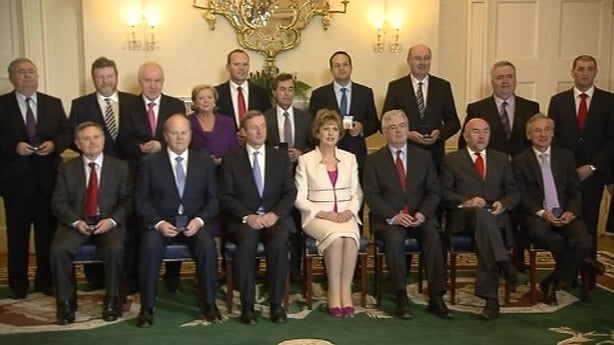
After the controversial report was published all cabinet ministers were asked to consider its implications and come up with proposals for action a few months later.
Mr Varadkar compiled a detailed response to the tribunal's recommendations and presented them to then minister for the environment, community and local government, Phil Hogan.
As well as proposals on the core issue of political donations, Mr Varadkar honed in on another area of political reform.
He noted there has been recognition of the absence of women in politics but there is also a notable absence of people from certain parts of the workforce.
"Certain professions and career paths suit service in politics, while others unfortunately do not," he observed.
He suggested there could be merit in Mr Hogan considering bringing in new legislation or policy measures that would enable people from the private sector to be seconded into Dáil Éireann for the duration of their first term as a TD.
If the person was re-elected then the secondment would automatically lapse.
RTÉ received a heavily-redacted response to requests under the Freedom of Information Act about the government’s response to the Moriarty Tribunal.
But according to an unredacted version of the same documents seen by RTÉ, Mr Varadkar put forward the radical proposals just a few months into his ministerial career.
Delighted I got this FOI request back. The new legislation has made things so much more transparent @rtenews pic.twitter.com/7324jgZWXI
— Conor McMorrow (@ConorMcMorrow) September 9, 2016
Plan for county councillors to get off work for meetings
At a local level, Mr Varadkar expressed the view that the scheduling of local authority meetings during the day, can act as "a serious deterrent" to encouraging people from traditional 9-5 jobs from taking office.
He asked Mr Hogan to consider measures to allow local authority members to be excused from work for a certain number of hours to attend council meetings.
In these cases, the councillors would suffer some wage loss for the time they are away from their day jobs.
Gilmore favoured complete ban on political donations
Another one of the recommendations in the final Moriarty Tribunal report was to introduce a complete ban on private donations to political parties.
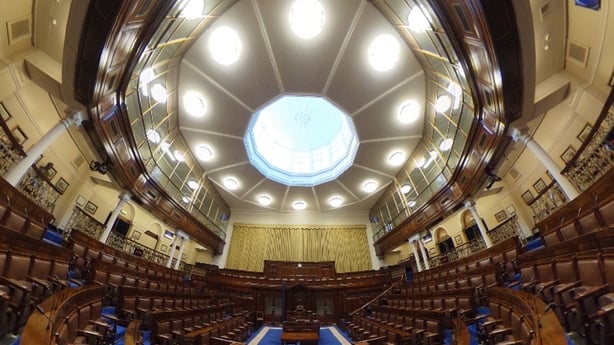
The report recommended that "the only cast-iron guarantee against corruption and abuses in the political system, and against the risk of distortions in the democratic process, that may arise from the private funding of political parties and political representatives would be to have a complete ban on private funding."
Further documents seen by RTÉ show that then tánaiste Eamon Gilmore favoured an outright ban on corporate donations to political parties.
But legal advice provided by attorney generals over the years was that such a ban would likely infringe the Constitution, the European Convention on Human Rights, and EU law.
A look at the 32nd Dáil: Is change necessary?
So did Minister Varadkar’s plan have merit? According to the recently published 'How Ireland Voted 2016: The election that nobody won' by Michael Marsh and Michael Gallagher there are still a high number of TDs from occupations such as teaching in the corridors of power.
There are 24 TDs in the 32nd Dáil who are teachers or school principals, three are lecturers and one is a special needs assistant. That's 28 of the 158 from teaching backgrounds.
Farmers make up the next largest group with 14 of 158 TDs and they are followed by 11 barristers and solicitors; and a total of eight accountants.
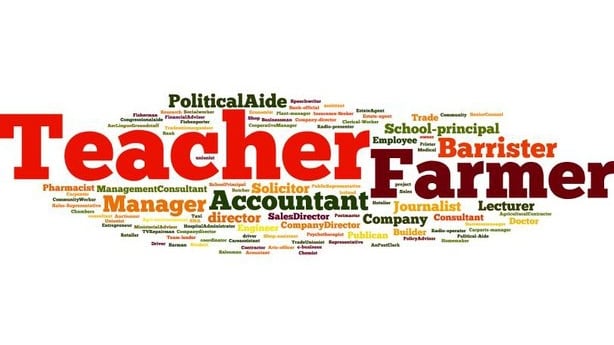
What does the plan tell us about Leo Varadkar?
Some view him as the Fine Gael leader in waiting. Even his critics cannot deny Mr Varadkar is a frontrunner, along with Simon Coveney, to take over from Enda Kenny when the time comes.
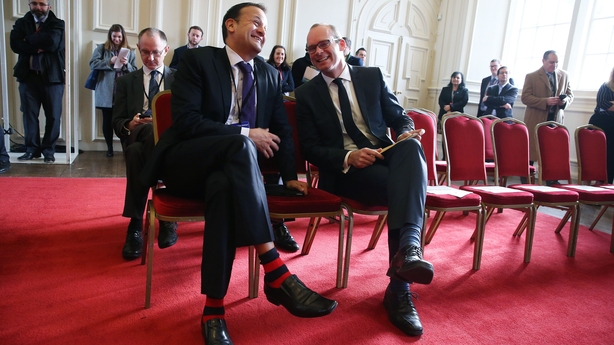
While these documents seen by RTÉ date from 2011, they do give an insight into Mr Varadkar’s conduct at the Cabinet table. They show that just months into his ministerial career, he put forward detailed proposals to break down long standing obstacles to political reform.
All cabinet ministers were asked to consider the Moriarty Tribunal report and come up with a plan for action.
But Mr Varadkar's proposals appear to be the most detailed and wide-ranging. Does this show a hard-working minister with vision who was always destined to be leader? Or an idealist, wet behind the ears, trying to impress in the early stages of his ministerial career?
Did the radical plan go anywhere?
Fine Gael's 140-page 2016 general election manifesto "Let's Keep the Recovery Going" devoted four pages to political reform and boasted that "Fine Gael in government has introduced a series of reforms to both open up and modernise Irish politics."
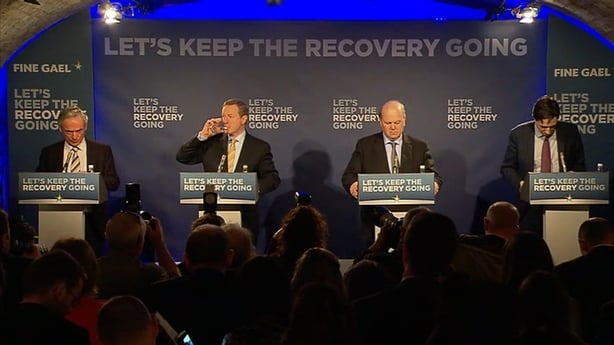
It contains no reference to Mr Varadkar's 2011 proposal for secondments to pave the way for private sector workers into national politics.
If Leo Varadkar is the next leader of Fine Gael, could these radical reforms under his leadership usher in a new era where Irish politics is opened up to a new breed of TD?
Where do things stand in 2017?
It is now over five years since the final Moriarty Tribunal Report was published.
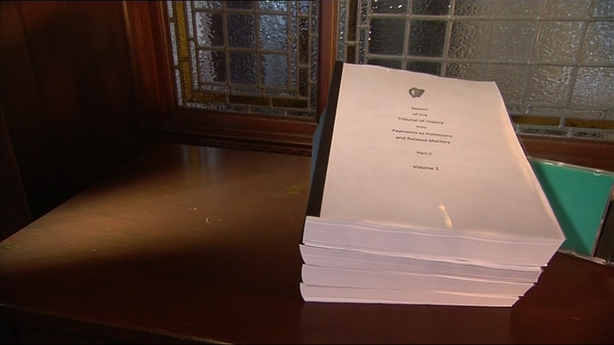
The previous government and the current minority coalition have been criticised for failing to implement the recommendations of the report into the Tribunal which was established back in September 1997.
The Electoral Amendment (Political Funding) Act, which passed through the Oireachtas in 2012, imposed new limits for donations.
Now donations to individuals exceeding €600 must be declared and donations exceeding €1,000 in any one year may not be accepted. Political donations greater than €1,500 must be declared, while donations greater that €2,500 in any one year may not be accepted.
'Moriarty Report was completely ignored by government'
Despite the new limits on political donations, opposition parties have been critical of the last government's response to the final Moriarty Tribunal Report.
A case in point is Fianna Fáil TD Billy Kelleher's contribution to the 2015 Dáil debate on the establishment of the Commission of Investigation, to investigate certain transactions at the Irish Bank Resolution Corporation.
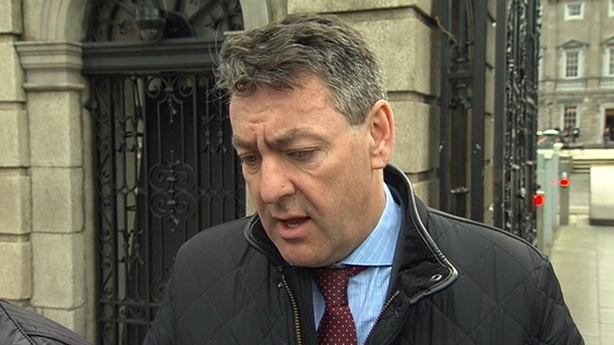
During that debate, Mr Kelleher claimed: "The Moriarty Tribunal has been completely ignored by this government. It was debated once in this house and we do not know what has happened to it since.
"The idea that we can spend huge sums of taxpayers' money and devote endless other resources to investigating a matter of public interest such as the granting of the second mobile phone licence, only for nothing to have happened four years later, leads to a belief among the general public - and sometimes they are right - that there is a cosy relationship between the upper echelons of business and the upper echelons of government, as identified by the Moriarty tribunal among others."
He added: "The fact that the report of the Moriarty tribunal is gathering dust in the office of the DPP is something about which the public are very suspicious."
Political ambivalence to Moriarty
Last week, Ireland slipped one place on the 2016 Corruption Perceptions Index compiled by Transparency International. The findings showed a fall in Ireland's ranking in the index since 2015 from 18 to 19 out of 176 countries.
Transparency International Ireland Chief Executive John Devitt was critical of delays on a decision by the Director for Public Prosecutions on whether court action will follow garda investigations that were undertaken as a result of the final Moriarty Tribunal report.
He said: "The apparent lack of action and political ambivalence towards Judge Moriarty’s findings sends the public the message that different rules apply to those in positions of power and influence. This will be deeply corrosive of public confidence in democratic government and our criminal justice system."
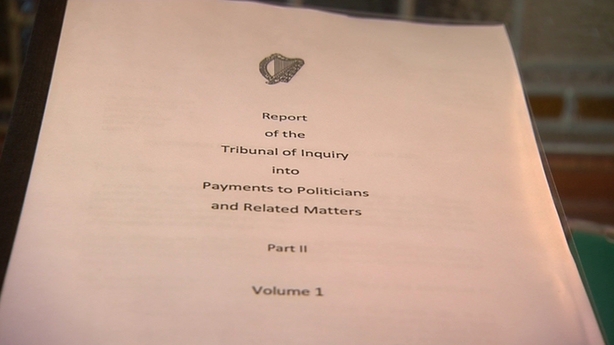
Twenty years after it was established, the shadow of the Moriarty Tribunal still hangs over Irish public life.







